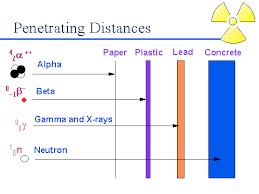New post on Northwest Clean Energy
|
|
|
|
EVITA could be a game changerby EnergyNorthwest |
“We
have to crawl before we can walk before we can run. But we have to
start somewhere and we believe these fast charging stations are a good
place to start.” - Robin Rego, Energy Northwest
Call
it the “charging gap.” Electric vehicle owners know what it is – the
distance between charging stations on the highway. On the West side of
Washington state, mainly along the Interstate 5 corridor, the gap is
relatively small, with Direct Current fast charging stations located
every 40 to 60 miles, according to the West Coast Green Highway website.
 But
if travelling eastward, say to the Tri-Cities area, the gap gets wider
and wider, limiting routes and, likely, opportunity for Westsiders to
make a carbon-free trip to a favorite Mid-Columbia winery.
But
if travelling eastward, say to the Tri-Cities area, the gap gets wider
and wider, limiting routes and, likely, opportunity for Westsiders to
make a carbon-free trip to a favorite Mid-Columbia winery.
Enter EVITA, the acronym for a new project involving Energy Northwest, local utilities and the Tri-Cities Development Council. It is sponsored by the Mid-Columbia Energy Initiative, an industry collaboration effort.
EVITA stands
for Electric Vehicle Infrastructure Transportation Alliance. The
objective is to advocate for sustainable electric transportation
infrastructure by promoting public/private partnerships in developing DC
fast charging stations throughout the service areas of local utilities
in Benton and Franklin counties, as well as along the major highways
leading into the Tri-Cities area.
“We
are focused on growing the (Energy Northwest) vision to support our
member utilities with what their interests are, charging station
infrastructure as an example, but also to stay on top of new
technologies,” said Robin Rego, Generation Project Development manager.
“Electric vehicles are a real part of storage. Storage is becoming much
more important as people are focusing on renewables.”

Alaxandria Von Hell (left) and Robin Rego, both of Energy Northwest, discuss an upcoming presentation to stakeholders on EVITA.
Rego
says wind and solar, because they are intermittent, require storage to
be most effective and it is becoming increasingly expensive and often
not possible to use other fast responding resources like hydro and
natural gas turbines to firm up renewables. Battery storage is in its
infancy with electric vehicles essentially at the forefront of battery
development. Energy Northwest brings its knowledge of battery storage
technologies to the table, according to Rego.
Transportation versus utilities
As reported by Brad Plumer in Vox, the transportation sector in the U.S. recently passed the utility sector in carbon emissions. Plumer notes:
Over the long term, the real hope is that electric cars will catch on and help drive down overall emissions by relying more heavily on the quickly-greening power sector. Right now, electric vehicles are only 0.7 percent of the US car fleet, and turnover is fairly slow, but many analysts expect that falling battery prices should help speed up the shift by making EVs more cost-competitive with traditional vehicles.
Washington
state has an enviable mix of carbon-free electricity generating
resources, including all the assets operated by EN. Where the state
struggles to reduce its carbon-footprint is the transportation sector,
which makes up 50 percent of the state's emissions.
The Energy Information Administration has figures
from 2014 that show Washington state as an electric vehicle leader in
the U.S. (see below). But in raw numbers, that's not saying much.
Washington has seven million registered cars and trucks on the road. The
state's goal is to have 50,000 electric vehicles or hybrids on the road
by 2020.

That’s where EVITA can help.
Benefits and challenges
The
program involves deploying DC fast charging stations at participating
businesses or organizations throughout the Mid-Columbia region. The
stations will re-charge an electric vehicle in about 30 minutes. Compare
that to a normal home re-charge which can take 8 to 20 hours to fully
re-charge. The speed is a key attribute because EV owners will want to
charge up and get back home. But with speed comes cost.
Installation
of one station can run between $50,000 and $150,000. On the other side
of the ledger is the potential for more customers for businesses, a
tourism boost and increased electricity sales for utilities. But there
are risks involved.

A DC fast charging station.
Demand
for public charging is relatively low and how quickly that will change
is uncertain. Another risk is that little is known about the financial
performance of EV charging station infrastructure.
Alaxandria
Von Hell, with EN's Generation Project Development and assisting on the
project, believes it is worth finding out if there can be a path to
success.
“Support
of this project aligns with Energy Northwest's core values. The
expansion of EV charging station access is of valuable interest to EN's
member utilities and participants and is aligned with EN’s vision
statement, to be a leader in energy solutions,” Von Hell said.
Ultimately,
success rests with collaboration between a wide-ranging group of
interested parties, including public and private utilities, charging
station owners and operators, EV owners and government agencies.
Participating utilities will be identifying potential charging station
locations this summer and waiting to hear about any grant money
available to offset costs.
If EVITA fulfills its promise, the program will open up a new gateway of carbon-free travel across the state.
Local utilities involved with the project include Benton PUD, Franklin PUD, City of Richland and Benton REA.
(Posted by John Dobken)
| Comment | See all comments | Like |










 We’ve
talked before about how the uranium in nuclear fuel undergoes fission
during reactor operations. The fission process turns uranium into a
number of other elements, many of which are radioactive. These elements
continue to produce large amounts of radiation even when the fuel is no
longer supporting a chain reaction in the reactor. So shielding is
necessary to block this radiation, and protect workers and the public.
We’ve
talked before about how the uranium in nuclear fuel undergoes fission
during reactor operations. The fission process turns uranium into a
number of other elements, many of which are radioactive. These elements
continue to produce large amounts of radiation even when the fuel is no
longer supporting a chain reaction in the reactor. So shielding is
necessary to block this radiation, and protect workers and the public. But
spent fuel also emits neutron radiation (particles from the nucleus
that have no charge) and gamma radiation (a type of electromagnetic ray
that carries a lot of energy). Both neutron and gamma radiation are
highly penetrating and require shielding.
But
spent fuel also emits neutron radiation (particles from the nucleus
that have no charge) and gamma radiation (a type of electromagnetic ray
that carries a lot of energy). Both neutron and gamma radiation are
highly penetrating and require shielding. The
NRC reviews spent fuel dry cask storage designs to ensure they meet
our limits on radiation doses beyond the site boundary, under normal and
accident conditions, and that dose rates in general are kept as low as
possible. Every applicant must provide a radiation shielding analysis as
part of the application for a new storage system, or an amendment to an
existing system. This analysis uses a computer model to simulate
radiation penetration through the fuel and thick shielding materials
under normal operating and accident conditions.
The
NRC reviews spent fuel dry cask storage designs to ensure they meet
our limits on radiation doses beyond the site boundary, under normal and
accident conditions, and that dose rates in general are kept as low as
possible. Every applicant must provide a radiation shielding analysis as
part of the application for a new storage system, or an amendment to an
existing system. This analysis uses a computer model to simulate
radiation penetration through the fuel and thick shielding materials
under normal operating and accident conditions.